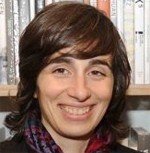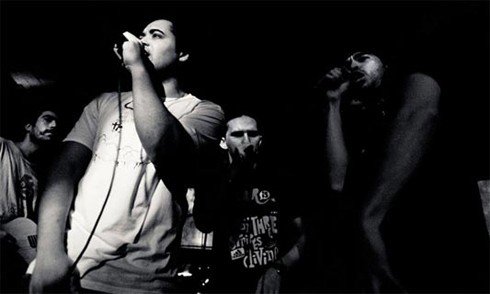It's Edd, one of the two MC's who tells us the story of the origin of the group's name with an open smile: " John, the bassist who is here since the beginning of FareeQ el Atrash was strolling in Beirut when he hit upon an excellent night club (forbidden to less than 18 year-old) with these three words as a sign. And since atrash means deaf in Arabic, we represent deaf people who want to listen to real music".
It's the encounter of Edd and John in 2006 and then of the "beatbox" Fayz, or FX in 2007 and finally the return to Lebanon of Ghassan, the guitarist in 2008 without forgetting Chino that launches FareeQ el Atrash into rap and hip-hop. "We have joined our forces, each one of us bringing about our very different backgrounds: funk, alternative rock, trip-hop. All these influences have given our compositions an irreplaceable identity". Compositions: FareeQ el Atrash's core about which the rapper has things to say. "We polish a lot our words and the choice of our rhythms". The words are in Lebanese dialect out of choice: "Our language is disappearing little by little, it is being replaced by English". In the first eponymous album of the group, only one song out of 12 is recorded in this language. "This is why we don't need oriental instruments".
The energy of the creative process looks like a very fluid workflow: "I work on my words and my beats on a software; then I arrive at the studio where John, who plays the piano and the guitar reconstitutes the notes; Ghassan adds the base and FX brings about his drumbeats. "With regards to the words, they try to reflect the world in which we live. We show our identity, out point of view whether it pleases or not." FareeQ el Atrash remains "far away from politicians" but gives its version of facts even it can be quite clear-cut: on "Gaza", the discourse is clearly anti "Zionist" administration; "we always deal with subjects that strike people; subjects that have to be brought up".
Rap poetry and the mixing of rhythms
Like "Democratiyé": "I wrote this text after the war of July 2006, evoking different reactions and fights where no one tries to sort things out. I talked about the errors of the two opposing parties in such a way that the auditor doesn't figure out who do I support! In concert, I always keep an eye on elder people who don't dance, who listen to what I say arms crossed, because they understand Arabic very well. When I see them smile and then, all of a sudden stop and raise an eyebrow, it means that they didn't like what I rapped...They are the ones who interest me. At the end of the performance they come to encourage me."
Edd goes on like the Lebanese group who signed a contract with the Fwd Records label for their first album: "Together with Simba Shani, Kamaria Russeau, Nisreen Kaj and Hayeon we have founded Taste Culture which aims to bring together different musical genres giving a large importance to rap and slam. The rap poetry Hkileh (Talk to me) were born in this spirit in 2009; they were such a success that we have now arrived to the sixth edition. At the end of each evening, a CD is distributed free of charge with a new song of each on-stage participant. "These invited artists have their own show now. But the most important thing is elsewhere: "The idea is to listen to anything. Those who come for rap become a bit impatient but sometimes discover a style that they begin to appreciate".
Not even once have the scissors of censorship bothered the collective: "We don't aggress anyone because we use the extended metaphor a lot and also humour. We don't imitate the gangsta! We are like everyone: we have a job, we go to university... Our texts are like our daily diary.."
FareeQ el Atrash were in concert on the 11th Septembre at the Festival of Hamra.(ÇT)





